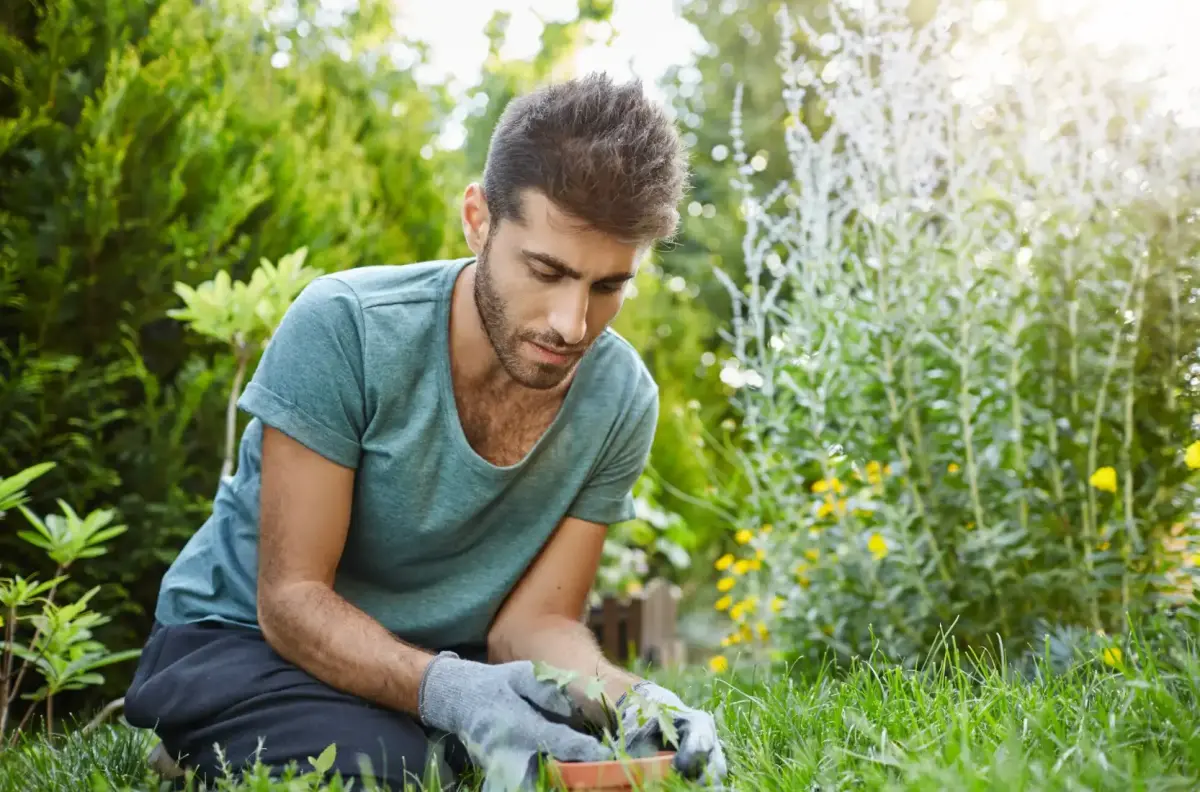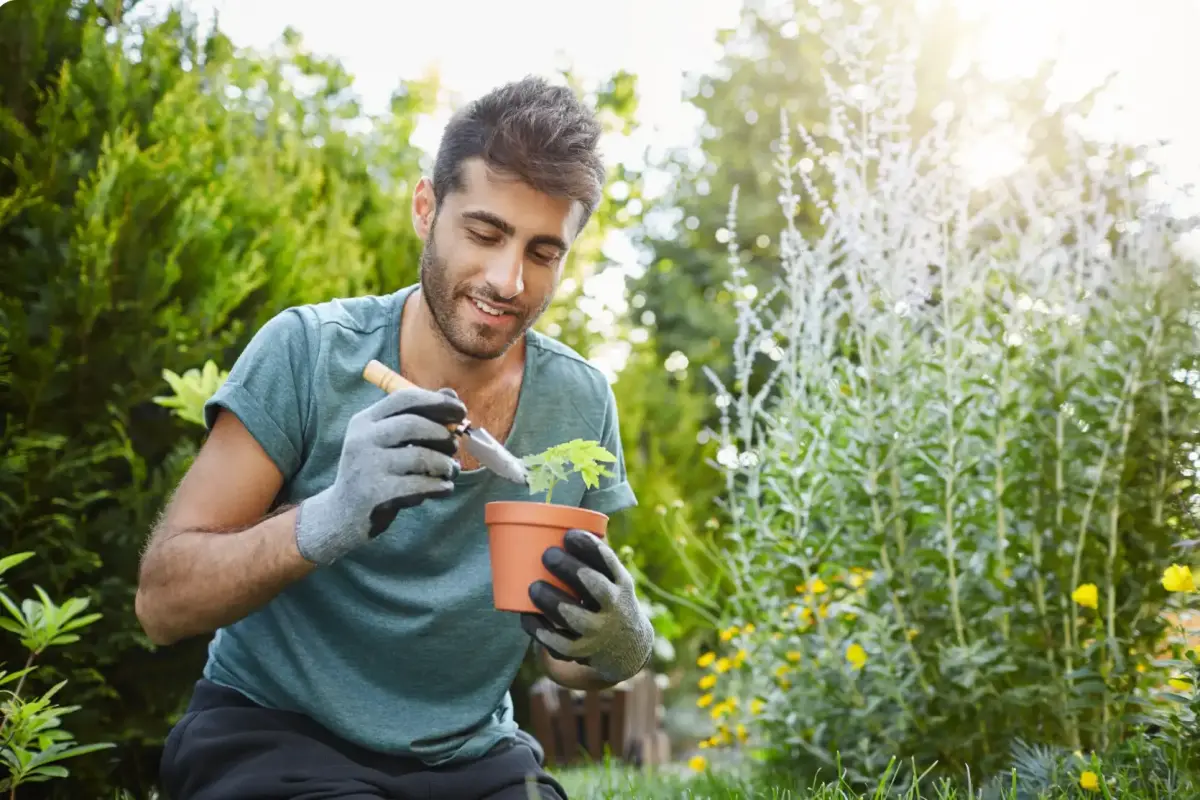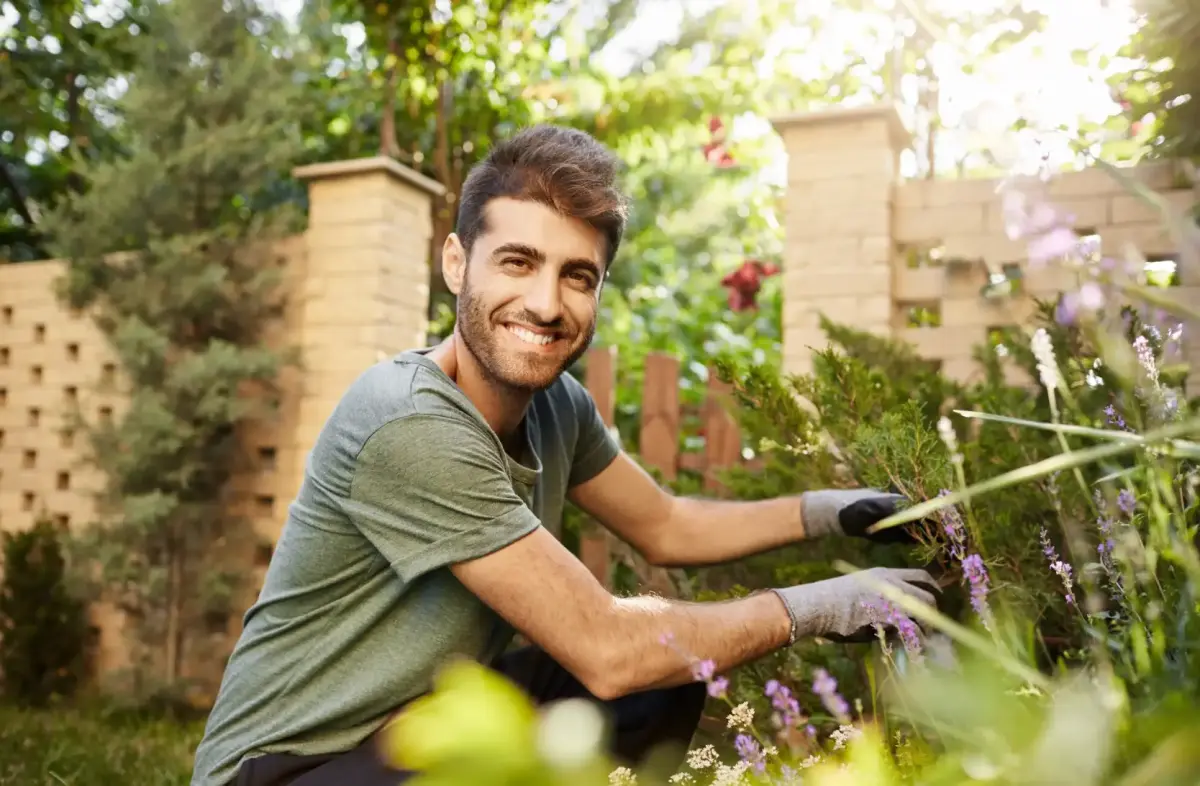
2 min
Category
Publish Date
October 8th, 2025
Quick Links
When people think of gardening, they often picture planting flowers or mowing lawns, but the profession of a gardener is much broader and more specialized, especially in today’s world of luxury estates, commercial landscaping, and sustainable horticulture. A professional gardener is responsible for cultivating and maintaining outdoor spaces, ensuring that plants, lawns, and landscapes thrive in every season. In private estates, gardeners are trusted with preserving the beauty and functionality of large grounds, often working closely with estate managers to ensure high standards are met. In landscaping, gardeners may focus on designing, constructing, and maintaining gardens for clients, blending aesthetics with functionality. Horticulture careers take gardening further by incorporating plant science, crop management, and greenhouse maintenance. Finally, estate gardening often combines all of these elements, where gardeners manage expansive grounds that require both technical expertise and artistic vision.
The demand for skilled gardeners continues to grow due to rising interest in sustainable living, luxury property ownership, and the value of well-maintained outdoor spaces. Whether working independently, for a landscaping company, or as part of a household staff, gardening offers a wide range of career opportunities. For anyone exploring how to become a gardener, it is worth understanding the types of gardener careers available and the diverse skills required to succeed in this rewarding profession.
Before pursuing a gardening career, it’s important to have a clear picture of what the job entails on a daily basis. The skills needed for gardening extend far beyond simply planting flowers—they include soil preparation, pruning, watering schedules, pest control, landscaping techniques, and seasonal maintenance. Gardeners are often responsible for managing entire outdoor spaces, ensuring not only the health of plants but also the aesthetic appeal of gardens and landscapes. Tasks can range from mowing lawns and trimming hedges to designing flower beds or maintaining vegetable gardens.
It is also essential to recognize the distinction between general garden maintenance and horticultural expertise. General garden maintenance covers routine tasks like lawn care, weeding, and cleaning outdoor areas. Horticultural expertise, on the other hand, involves deeper plant knowledge, including soil science, plant diseases, and advanced landscaping design. Many gardeners progress from general maintenance to specialized horticulture over time as they gain more experience and training. Working in varied environments—from private estates to public parks—also means gardeners need to adapt to different gardening work environments and use the right gardener equipment essentials for each task. Understanding these responsibilities is the foundation of building a professional career in gardening.
To succeed as a professional gardener, it’s essential to build a mix of technical expertise and personal qualities that make you effective in different work environments. Among the most critical skills needed for gardening are plant care knowledge, landscaping techniques, and eco-friendly gardening practices. Plant care requires a strong understanding of soil types, watering cycles, pest management, and the growth needs of different species. Landscaping techniques go a step further, involving the design and creation of outdoor spaces that are both functional and aesthetically pleasing, whether for private estates, commercial grounds, or urban gardens. Eco-friendly gardening is becoming increasingly important, as clients and employers seek sustainable solutions such as organic planting, composting, and water-efficient irrigation systems.
Beyond technical expertise, soft skills are equally important. Gardening requires patience, since results often take months or years to fully show. Problem-solving is vital for dealing with challenges such as plant diseases, unpredictable weather, or soil deficiencies. Strong customer service skills also matter, particularly for gardeners working directly with clients in private homes or landscaping businesses. These qualities not only help deliver results but also build trust and long-term relationships. Ultimately, the qualities of a successful gardener combine reliability, creativity, and resilience, making it possible to grow a fulfilling and sustainable career.
While natural talent and hands-on experience are valuable, structured education can provide gardeners with a professional edge. Enrolling in gardener training programs or formal horticulture courses allows aspiring professionals to deepen their knowledge and gain recognized qualifications. These programs cover everything from soil science and botany to landscaping design, irrigation systems, and advanced pest management. Specialized courses in horticulture and landscaping can also prepare gardeners for niche roles, such as greenhouse cultivation, estate management, or ecological landscape design.

For those looking to strengthen their credentials, gardener certification courses provide industry-recognized qualifications that can significantly improve employability. Many training providers and horticultural associations in the UK, US, and Europe offer certifications that are valued by private estates, landscaping companies, and public institutions. In addition, completing formal training demonstrates commitment to the profession, helping candidates stand out when applying for roles. For career growth, certifications can open doors to supervisory positions, estate gardening management, or even entrepreneurship in starting a gardening business. In short, investing in training and certifications not only enhances technical knowledge but also creates long-term career advancement opportunities in the gardening industry.
No matter how much training you receive, nothing compares to the value of hands-on practice when pursuing a career in gardening. For aspiring professionals, gaining practical experience is the foundation of long-term success. Many start out in entry-level roles, such as working for landscaping companies, assisting in private estates, or volunteering in community gardens. These early opportunities teach essential skills like planting, pruning, soil care, and seasonal maintenance while allowing you to observe experienced gardeners at work. Apprenticeships and trainee programs are particularly useful because they provide structured mentoring and a clear pathway to progression. The experience required for gardening varies depending on the role, but most employers want to see proven ability with plant care, attention to detail, and a willingness to work outdoors in different weather conditions. Each role you take—whether in a local park, a private estate, or a commercial landscaping firm—contributes to your broader gardener career path, helping you specialize in areas such as horticulture, landscaping design, or estate management. By building a portfolio of experience, you establish yourself as a reliable professional capable of handling diverse gardening challenges, which ultimately opens doors to more prestigious and better-paying roles.
Once you have accumulated practical experience, the next crucial step is presenting your skills and achievements effectively through a professional resume and job application. A strong CV should highlight both your technical knowledge and your work history in a way that appeals to employers. Look at gardener resume examples to understand how to structure sections such as work experience, certifications, and references. Be sure to include specific details, such as the types of gardens you have maintained, projects you have contributed to, or specialized techniques you are proficient in, like eco-friendly gardening or landscaping design. Employers also value clarity, so avoid vague descriptions and instead provide measurable outcomes—such as increasing the health of a private garden through improved soil care or leading a team on a landscaping project. Alongside the resume, your application should include a tailored cover letter that reflects your enthusiasm for gardening and demonstrates how your background aligns with the role. Following proven gardener job application tips—such as researching the employer’s style of gardens, customizing your skills to match the job description, and emphasizing certifications or training—will help your application stand out. Remember, your resume and application are often the first impression an employer has of you, so presenting yourself as professional, skilled, and passionate about gardening can significantly improve your chances of moving forward to the interview stage.
Successfully landing a gardening role requires not only strong technical skills but also excellent gardener interview preparation. Candidates should expect a wide range of gardener interview questions, many of which focus on practical knowledge such as plant identification, soil treatment, seasonal care, irrigation techniques, and safe use of gardening tools. Employers may also ask about landscaping techniques and problem-solving skills, for example how you would handle plant diseases, pest infestations, or a client’s request for eco-friendly solutions. Preparing clear, thoughtful answers in advance will help demonstrate both expertise and confidence.

Presentation also matters. Knowing what to wear to a gardener interview is crucial—opt for smart, clean, and practical attire that reflects professionalism without being overly formal. Bringing along a gardener portfolio—with photos of past projects, design sketches, or landscaping plans—can give you a strong competitive edge. Candidates should also rehearse behavioral questions, such as teamwork and customer service scenarios, since private households and landscaping firms value discretion, reliability, and client communication. After the interview, following up with a polite thank-you note shows professionalism and helps build a lasting impression. By avoiding common mistakes—such as vague answers, underestimating safety practices, or failing to research the employer—you can demonstrate readiness and secure your desired role.
Once prepared, the next step is to explore the wide variety of gardening job opportunities available across residential, commercial, and estate environments. Many candidates begin by browsing online gardening job boards or specialized gardener agencies, which connect skilled professionals with private estates, landscaping companies, and local councils. Large landscaping firms often post vacancies for entry-level gardeners, groundskeepers, or horticultural assistants, offering excellent opportunities for skill development. For those interested in luxury estates or private homes, specialist staffing agencies provide tailored placements that require higher levels of discretion, professionalism, and horticultural expertise.Equally important is networking for gardeners. Joining local or national gardener associations not only offers access to exclusive job boards but also provides opportunities for professional development, training workshops, and industry networking events. Building connections within the horticultural community can lead to referrals, freelance opportunities, and even long-term employment contracts. Additionally, many gardeners find success through word-of-mouth recommendations, especially in private household and estate settings where trust and reputation are vital. By combining traditional job applications with active networking and association membership, aspiring gardeners can maximize their chances of finding fulfilling, stable roles while building a strong career foundation.
When considering a career in gardening, it’s important to have realistic insights into gardener salary expectations and long-term prospects. Salaries can vary significantly depending on location, type of employment, and level of specialization. Entry-level gardeners working in community settings or small landscaping firms may earn modest wages, often at or slightly above minimum wage, while experienced private gardeners employed by estates or high-net-worth households can command considerably higher pay due to the personalized and discreet nature of their work. Landscaping contractors who manage multiple clients or specialize in areas like irrigation systems, eco-friendly gardens, or outdoor design often earn higher fees, particularly if they operate independently or own a small business. Horticultural specialists working in nurseries, botanical gardens, or research institutions typically receive salaries that reflect their technical expertise and formal training.
From a gardener career path perspective, the profession offers diverse growth opportunities. Many gardeners start as assistants or groundskeepers and progress to supervisory roles, such as head gardener or landscaping project manager, where they oversee teams and manage large-scale projects. Others branch out into related industries, including garden design, greenhouse management, or sustainable landscaping consulting. With the right skills, certifications, and professional reputation, advancement is not only possible but also highly rewarding. For those seeking gardener advancement opportunities, options range from moving into management within large firms to establishing a successful gardening or landscaping business, enabling both financial growth and creative independence.
Like any skilled trade, gardening requires a commitment to professional development for gardeners in order to stay competitive and adaptable. The gardening work environment is constantly evolving with new techniques, technologies, and eco-conscious practices. Continuous learning ensures that gardeners are equipped to meet modern demands, such as water-efficient irrigation systems, organic pest management, and sustainable planting strategies. By keeping up with these innovations, gardeners can offer clients cutting-edge solutions while also contributing to environmentally responsible landscaping.

Professional development can take many forms, including attending seasonal workshops, enrolling in advanced horticulture or landscaping courses, or participating in conferences hosted by gardener associations. These opportunities not only provide technical updates but also encourage networking, collaboration, and knowledge-sharing with peers. Many successful gardeners also invest in developing design skills, digital landscaping software proficiency, and project management abilities, which enhance their employability in larger firms or high-end private estates. Additionally, incorporating eco-friendly gardening practices into daily work can set gardeners apart as specialists, particularly in today’s climate-conscious world. Ultimately, ongoing development ensures a gardener remains versatile, innovative, and positioned for long-term career growth.
For many professionals, the ultimate goal after gaining experience is how to start a gardening business and transition into self-employment. Becoming a self-employed gardener allows you to control your schedule, specialize in services that match your skills, and build a loyal client base. The first step is ensuring you have the right gardener equipment essentials—from basic tools such as spades, pruners, and lawnmowers to more advanced machinery like hedge trimmers, irrigation systems, and landscaping equipment. Investing in reliable, high-quality tools not only improves efficiency but also creates a professional impression on clients.
Beyond tools, setting up a gardening business requires some business fundamentals: registering your business, setting clear pricing structures, creating contracts for services, and securing appropriate insurance. Marketing is equally important—building an online presence, distributing flyers, or partnering with local estate managers can help establish visibility in your community. Networking and word-of-mouth referrals often play a critical role in finding new clients, so professionalism, punctuality, and quality service are key to long-term success. Over time, successful gardeners may expand their services to include landscaping design, seasonal garden planning, or eco-friendly solutions, carving out a unique niche in a competitive market. Starting small but strategically can lead to sustainable growth and a rewarding independent career.
Becoming a professional gardener is a journey that combines practical skills, formal training, and a passion for nature. From understanding daily responsibilities and developing essential skills to pursuing certifications, building experience, and exploring career paths, each step brings you closer to success in the field. For those seeking independence, launching your own business can open doors to financial freedom and creative expression. With continuous professional development, eco-friendly practices, and a commitment to excellence, gardening can be both a stable and deeply fulfilling career.
If you’re ready to take the next step, explore training and certification programs to sharpen your skills, connect with professional associations to grow your network, and consider recruitment services to find opportunities that match your career goals. Whether you dream of working in private estates, landscaping companies, or starting your own business, the possibilities are vast for those who are prepared.